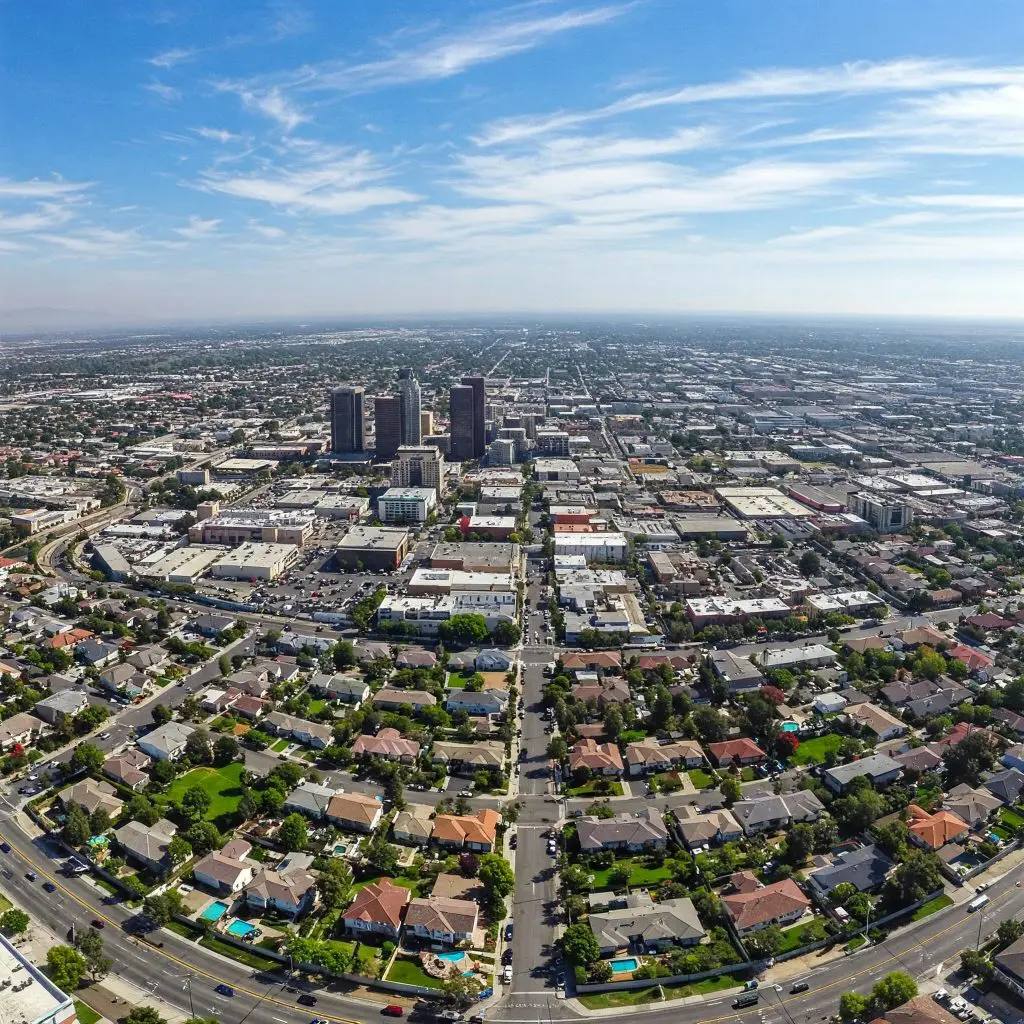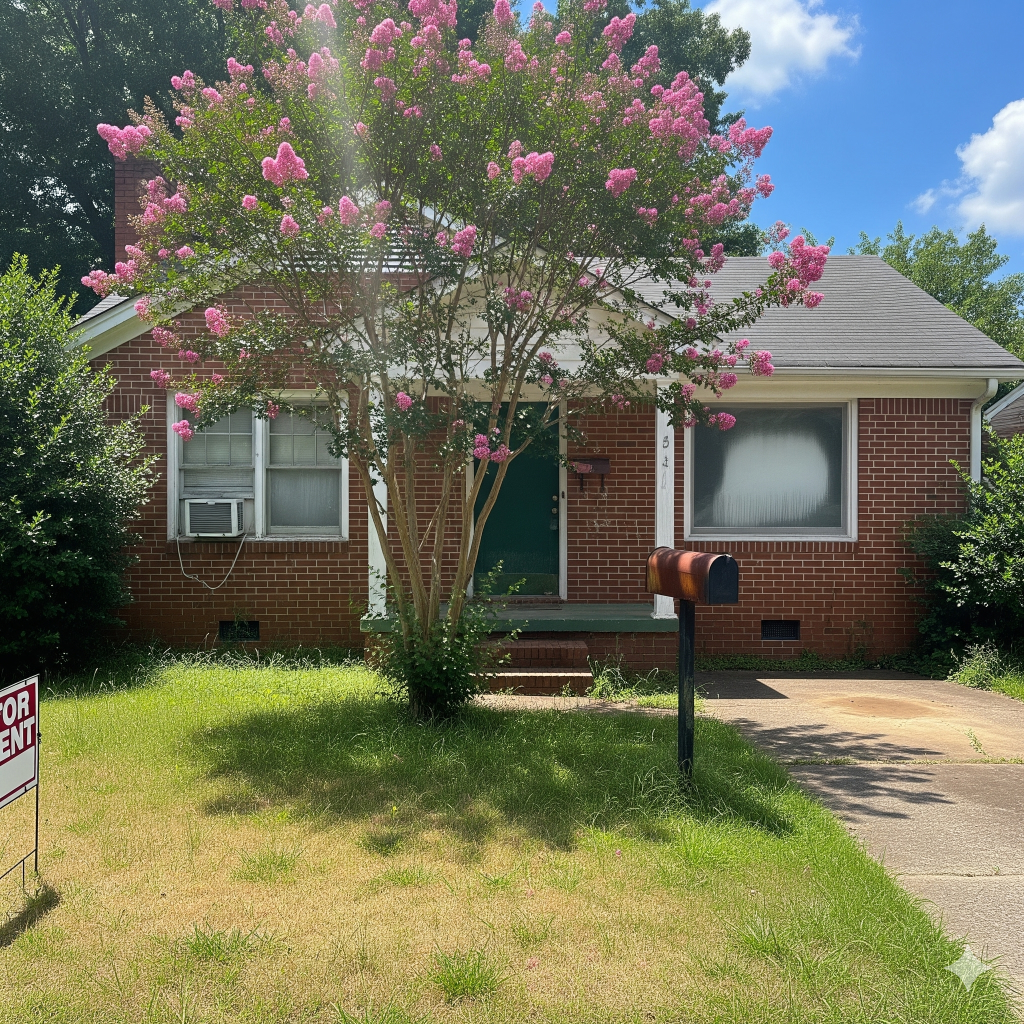Jacksonville Inflation Budgeting & Real Estate Investment Guide 2025: City-Specific Strategies
Jacksonville, Florida is emerging as an economic powerhouse in the Southeastern United States. As inflation remains elevated throughout 2025, local families, investors, and business owners must adapt their budgeting and investment strategies to thrive in a dynamic financial environment. This guide delivers a deep dive into Jacksonville’s inflation trends, local economic drivers, and how to identify the most resilient real estate opportunities—customized for this vibrant city.
- Jacksonville Inflation Budgeting & Real Estate Investment Guide 2025: City-Specific Strategies
- Table of Contents
- 2025 Economic Overview: Jacksonville’s Growth & Inflation Trends
- Inflation Budgeting: Managing Rising Costs in Jacksonville
- Jacksonville Real Estate Market Trends in 2025
- Neighborhood Analysis: Rental Markets & Inflation Hedges
- Top Real Estate Investment Strategies in Jacksonville
- Understanding Local Policies, Growth, and Regulations
- Success Stories: Jacksonville Investors Navigating Inflation
- 2025-2030: Economic Forecasts & Real Estate Outlook
- Conclusion: Building Wealth in Jacksonville During Inflation
Table of Contents
- 2025 Economic Overview: Jacksonville’s Growth & Inflation Trends
- Inflation Budgeting: Managing Rising Costs in Jacksonville
- Jacksonville Real Estate Market Trends in 2025
- Neighborhood Analysis: Rental Markets & Inflation Hedges
- Top Real Estate Investment Strategies in Jacksonville
- Understanding Local Policies, Growth, and Regulations
- Success Stories: Jacksonville Investors Navigating Inflation
- 2025-2030: Economic Forecasts & Real Estate Outlook
- Conclusion: Building Wealth in Jacksonville During Inflation
2025 Economic Overview: Jacksonville’s Growth & Inflation Trends
- Population (2025 est.): 1,035,000+ (Metropolitan Statistical Area)
- Annual Population Growth Rate: Approx. 1.2% (outpacing national average)
- GDP Growth (2024-2025): 2.6%
- Local Inflation Rate (2025): 3.7% (higher in housing, utilities, insurance)
- Major Economic Drivers: Logistics, port/shipping, healthcare, financial services, tech, military
Jacksonville benefits from diverse economic pillars, with its deepwater port, growing tech scene, and expanding healthcare sector serving as stable anchors. These factors support population and job growth, but also contribute to ongoing price pressures in key cost-of-living areas.

Inflation Impact
- Housing: Median home price up 7.1% YoY (late 2024-2025)
- Rents: Up 6.3% YoY, with some urban neighborhoods topping 8%
- Consumer Goods: Energy and transportation closest to national averages
Inflation Budgeting: Managing Rising Costs in Jacksonville
Jacksonville’s inflation is felt most in housing, insurance, and utility rates, reflecting regional risks (storms) and in-migration.
Need capital? GHC Funding offers flexible funding solutions to support your business growth or real estate projects. Discover fast, reliable financing options today!
Test Your Expertise: The Complexities of the 1031 Exchange

As a sophisticated real estate investor, you understand that the 1031 Exchange is a cornerstone strategy for tax deferral and wealth accumulation. But beyond the basics, the intricacies of the 1031 Exchange rules can pose significant challenges. This quiz is designed to test your in-depth knowledge and highlight critical nuances that separate casual investors from true experts in 1031 Exchange transactions.
Instructions: Choose the best answer for each question.
⚡ Key Flexible Funding Options
GHC Funding everages financing types that prioritize asset value and cash flow over lengthy financial history checks:
-
Bridge Loans: These are short-term loans used to "bridge the gap" between an immediate need for capital and securing permanent financing (like a traditional loan or sale). They are known for fast closing and are often asset-collateralized, making them ideal for time-sensitive real estate acquisitions or value-add projects.
-
DSCR Loans (Debt Service Coverage Ratio): Primarily for real estate investors, these loans are underwritten based on the property's rental income vs. debt obligation ($\text{DSCR} = \text{Net Operating Income} / \text{Total Debt Service}$), not the borrower's personal income or tax returns. This offers flexibility for those with complex finances.
-
SBA Loans: The Small Business Administration (SBA) guarantees loans offered by partner lenders. While providing excellent terms (long repayment, lower rates), the application process is typically slower than private/bridge funding, often making them less suitable for immediate needs. SBA eligibility heavily relies on the DSCR metric for repayment assessment.
🌐 Learn More
For details on GHC Funding's specific products and to start an application, please visit their homepage:
The Ultimate DSCR Loan for Rental Property Quiz

Are you looking to expand your real estate investment portfolio? A DSCR loan might be the perfect tool to help you achieve your goals without relying on traditional income documentation. Test your knowledge with this quiz to see if you're ready to master the intricacies of a DSCR loan for rental property.
Local Cost of Living Breakdown (2025)
| Expense | Average Monthly |
|---|---|
| Rent (2-BR apartment, city average) | $1,680 |
| Utilities (Electricity, water, garbage) | $180 |
| Groceries (Family of 4) | $960 |
| Transportation (car+insurance, local transit) | $410 |
| Property Taxes (effective rate) | 0.89% |
Effective Budgeting Strategies
- Refinance/Lock in Stable Housing Costs: Work with local lenders for fixed-rate mortgages and avoid adjustable rates.
- Utilities: Leverage city’s “MyJEA Utility Tracker” for energy management; take advantage of local solar/efficiency rebates.
- Insurance Bundles: Use Florida-specific insurance consolidators for home/auto savings, especially given rising premiums.
- Transit: Consider commuter neighborhoods linked to the JTA Skyway or First Coast Flyer BRT for cost-effective transport.
- Shop Local: Take advantage of Duval County and Riverside Arts Markets for cost-competitive produce and goods.
Jacksonville Real Estate Market Trends in 2025
Jacksonville continues to be one of the most affordable large metro areas in Florida, but with robust demand for urban rental properties due to in-migration from higher-cost states and retirees.
Key Market Segments
- Urban Rental Properties: Outpacing single-family home price growth in ROI since 2022
- Suburban Multifamily: High demand in Mandarin, Southside, and the Intercoastal West areas
- Build-to-Rent Developments: Attracting both institutional and small investors in Arlington and North Jacksonville
- Short-Term Rentals: Beach-adjacent areas (Jacksonville Beach, Ponte Vedra) see strong occupancy, driven by seasonal tourism
Neighborhood Price Analysis (2025)
| Neighborhood | Median Home Price | Median Monthly Rent |
|---|---|---|
| Downtown/Urban Core | $310,000 | $1,850 |
| Riverside/Avondale | $410,000 | $2,050 |
| Southside | $382,000 | $1,780 |
| Mandarin | $420,000 | $1,950 |
| North Jacksonville/ Airport | $265,000 | $1,500 |
| Jacksonville Beach | $620,000 | $2,700 |
| Arlington | $240,000 | $1,400 |
Neighborhood Analysis: Rental Markets & Inflation Hedges
Best Neighborhoods for Rental Investments
- Downtown & LaVilla: Significant apartment and mixed-use redevelopment; proximity to JTA Skyway, local hospitals, and business district is attracting high-earning young renters. Example: Lofts at LaVilla, fully leased in 2024 in less than 2 months.
- Riverside/Avondale: Historic demand, popular with professionals and medical staff; stable long-term tenants and premium rents. Limited new inventory means lower vacancy.
- Arlington & Fort Caroline: Older housing stock, lower prices; strong ROI for strategic rehabilitation and Section 8 or workforce housing. “Value add” investors report 8-10% CAP rates.
- San Marco: Blending luxury apartments with eclectic retail; top school districts drawing stable, higher-income renters.
- Jacksonville Beach / Atlantic Beach: Vacation/short-term rental market resilient, but sees seasonal swings. Strong protection against inflation due to tourism and retiring baby boomers.
Transit Expanded Impact
Investments near metrics like the JTA Skyway (Downtown, Brooklyn, Springfield) and First Coast Flyer BRT lines (Southside, Arlington) see greater appreciation and rental demand as fuel and commute costs rise.
Top Real Estate Investment Strategies in Jacksonville
✅ Small Business Resources
-
SBA – Small Business Administration
https://www.sba.gov - SCORE Mentors (Free Mentoring & Workshops)
https://www.score.org - Small Business Development Centers (SBDC)
https://americassbdc.org
Are You an SBA Real Estate Loan Expert?

Test your in-depth knowledge on using SBA Loans for owner-occupied commercial Real Estate acquisition. These questions delve into the critical details that can impact your business's growth and financial strategy.
1. Urban Rental Properties: The Prime Inflation Hedge
- Median rent increases consistently outpacing inflation (avg. +6% YoY, 2023-2025)
- High occupancy (>96%) in urban multifamily and renovated historic buildings
- Diverse renter base: Young professionals, medical staff, logistics and military personnel
✅ Real Estate Investor Resources
-
AirDNA (Short-Term Rental Data)
https://www.airdna.co - Rentometer (Rent Comps)
https://www.rentometer.com - Zillow Research & Data
https://www.zillow.com/research
DSCR Loan IQ Quiz!

Test your knowledge of Debt Service Coverage Ratio (DSCR) loans!
2. Build-to-Rent Developments
- Growing in North Jacksonville, Arlington, Westside for both entry-level and workforce demographics
- Example: “Lakeside Villas” BTR community, units pre-leased before completion
3. Rehab & Value-Add Multifamily
- Older properties in Arlington, Fort Caroline, and Westside offer above-market CAP rates
- Qualify for city and state incentive grants for workforce housing rehabilitation
4. Vacation and Short-Term Rentals (Coastal)
- Jacksonville Beach, Neptune Beach, and Ponte Vedra: nightly rates rise with local festivals and events
- City’s lenient STR regulations compared to South Florida markets
Understanding Local Policies, Growth, and Regulations
Property Taxes & Regulations
- Duval County property tax rate: 0.89% (lower than most Florida metros)
- Homestead exemption offers protection from steep tax increases for owner-occupants
- Relatively business-friendly permitting and zoning in the urban core for multifamily and mixed-use development
- Short-term rental regulations: Registration required, but less onerous than Miami/Orlando
City Economic Policies
- Ongoing “Downtown Investment Authority” (DIA) incentives for adaptive reuse, rental construction, start-ups in the core
- State-level “Live Local Act” provides tax credits and low-interest loans for affordable housing projects
- Infrastructure bond investments to expand public transit, improve flood mitigation, and enhance the port
Business Climate & Investment Incentives
- No local income tax; Florida has no state income tax, increasing investor net returns
- Hub status for logistics, government, healthcare, and fintech attracting stable employers and well-paid tenants
- Frequent city-organized public/private workshops on workforce housing, especially for military families
Success Stories: Jacksonville Investors Navigating Inflation
Case Study 1: Urban Core Multifamily Acquisition
In late 2023, a local investment group acquired and renovated a 25-unit building in Springfield, targeting mid-level professionals. With rents set at $1,400/month (up from $950 pre-renovation), the property achieved a 9% yield in year 1 and 98% occupancy, well ahead of single-family returns. The group leveraged both city energy-efficiency grants and a local construction workforce program, reducing operating expenses by 14%.
Case Study 2: Build-to-Rent in Arlington
An out-of-state investor partnered with a Jacksonville builder to develop a 40-unit build-to-rent community near the Regency Square area. Through incentives from the Florida Housing Finance Corporation, they secured below-market lending for construction. All units leased within three months of opening, with year-one gross rents topping initial projections by 10%.
Case Study 3: Jacksonville Beach Short-Term Rentals
A retired couple converted their Jacksonville Beach property from annual lease to short-term rentals. Net income rose 21%, offsetting local insurance inflation. They leveraged local property management and digital marketing tailored to beach tourists, maintaining an impressive 84% occupancy year-round.
2025-2030: Economic Forecasts & Real Estate Outlook
- Population growth is forecast to continue near 1% annually, with rising in-migration from the Northeast and Midwest.
- The urban apartment market remains strongest, with steady rent growth (projected 4-5%/yr through 2030)
- City investments in port expansion, public transit, and flood infrastructure are expected to boost both job creation and real estate values in targeted districts.
- Strategic investment in workforce housing and transit-adjacent properties poised to outperform, especially as domestic migration reshapes regional supply/demand.
- Home price increases projected to normalize to 4-5% by 2027, after peaking in 2025-2026.
Conclusion: Building Wealth in Jacksonville During Inflation
Jacksonville’s dynamic demographic and economic conditions, combined with a business- and growth-friendly policy environment, present robust opportunities for investors able to adjust for inflation. Key to outpacing inflation in 2025 is to focus on urban rental properties, transit-adjacent districts, and value-add multifamily in rebounding neighborhoods. Smart budgeting and leveraging local incentives allow both residents and investors to mitigate rising costs and maximize returns. Whether buying your first investment property or scaling a rental portfolio, Jacksonville’s resilient housing market and long-term growth trajectory make it a strategic city for inflation-era real estate investment.
Get a No Obligation Quote Today.



